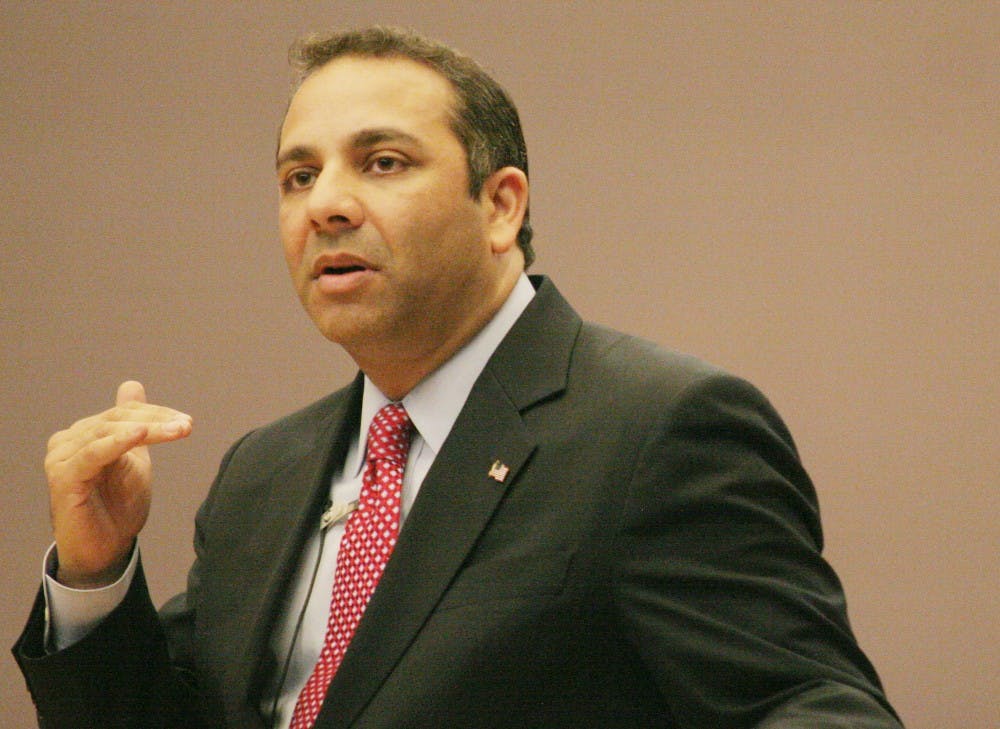For former Homeland Security administrator Arif Alikhan, the effects of the 9/11 attacks are still apparent in the Muslim American community 10 years later.
Alikhan, who spoke to more than 100 students and community members in the FedEx Global Education Center Monday evening, addressed the harsh stereotypes that have permeated American culture regarding the relationship between Islam and terrorism.
Alikhan — who served as assistant secretary for policy development at the Department of Homeland Security during the Obama administration — said these myths are linked to the false idea that all Muslims are terrorists.
He stressed the importance of getting rid of false assumptions about Muslim Americans because they too were victims in the 9/11 attacks.
Alikhan listed a number of myths about Muslim Americans, including that Muslims are inherently different than other Americans, that they all think alike, that all are susceptible to becoming terrorists and that they could never be loyal to the United States.
He concluded that each of these myths need to be eliminated.
Two panels followed Alikhan’s talk — one about Muslim Americans and one about Muslims abroad.
The panels were composed of professors and experts from the professional world who study Islam, including professors from UNC, Duke University and N.C. State University.
Engseng Ho, a professor of anthropology and history at Duke, said he was pessimistic about the War on Terror because it isn’t likely to end until there is absolute victory or defeat.



